The Nanomotors International Conference was held in Barcelona from 2 to 5 June. The event, organised by the Institute of Bioengineering of Catalonia (IBEC) in collaboration with the ‘la Caixa’ Foundation, the Catalunya La Pedrera Foundation, and the European Research Council (ERC), brought together the most prominent international leaders in the field of nanomotors. For three days, they learned about the latest advances in biomedical applications and the collective behaviour of self-propelled nanomotors, from both experimental and theoretical perspectives.
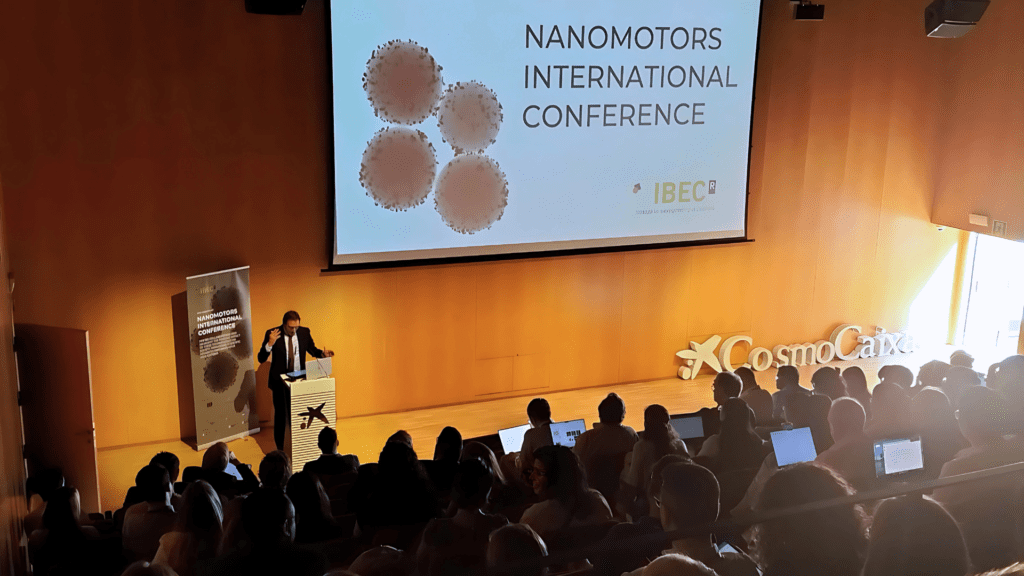
From 2 to 5 June, the Nanomotors International Conference was held in Barcelona to celebrate the 20th anniversary of nanobot research, a milestone that marks two decades of scientific and technological progress. More than 150 participants and three days of invited talks, working sessions and posters explored the most advanced designs and applications of nanomotors. The meeting focused on biomedical applications and the collective behaviour of self-propelled nanomotors, from both experimental and theoretical perspectives.
On Sunday 2 June, a pre-conference activity was held at La Pedrera, where participants enjoyed an informative talk by Walter Paxton, Professor of Chemistry and Biochemistry at Brigham Young University (USA), and Samuel Sánchez, IBEC Principal Investigator and conference organiser. During the presentation, Paxton and Sánchez reviewed the history of nanobots:
Since the first paper on nanomotors was published in 2004, the field has developed rapidly, transforming concepts that seemed like science fiction into tangible realities. The first experiments showing that it was possible to create nanometre-scale devices capable of moving in fluid environments opened the door to revolutionary applications in medicine, such as targeted drug delivery, minimally invasive surgery and the diagnosis of disease at the cellular level.
After the lecture, Samuel Sánchez presented a commemorative award to Walter Paxton and Ayusman Sen, Professor of Chemistry at the University of Pennsylvania (USA), keynote speakers at the conference, for their pioneering work in the field of nanorobots. They were two of the authors of a landmark study published in the Journal of the American Chemical Society in 2004, which described the autonomous movement of nanoparticles from a catalytic reaction.
After the lecture, the audience enjoyed the screening of the documentary ‘Nanobots, A Fantastic Voyage’.
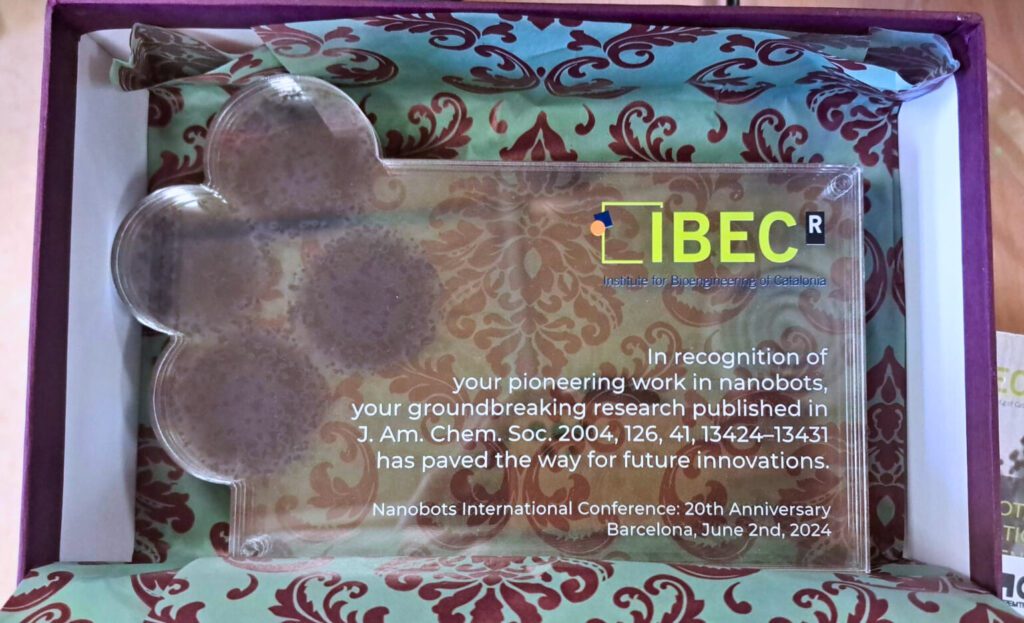
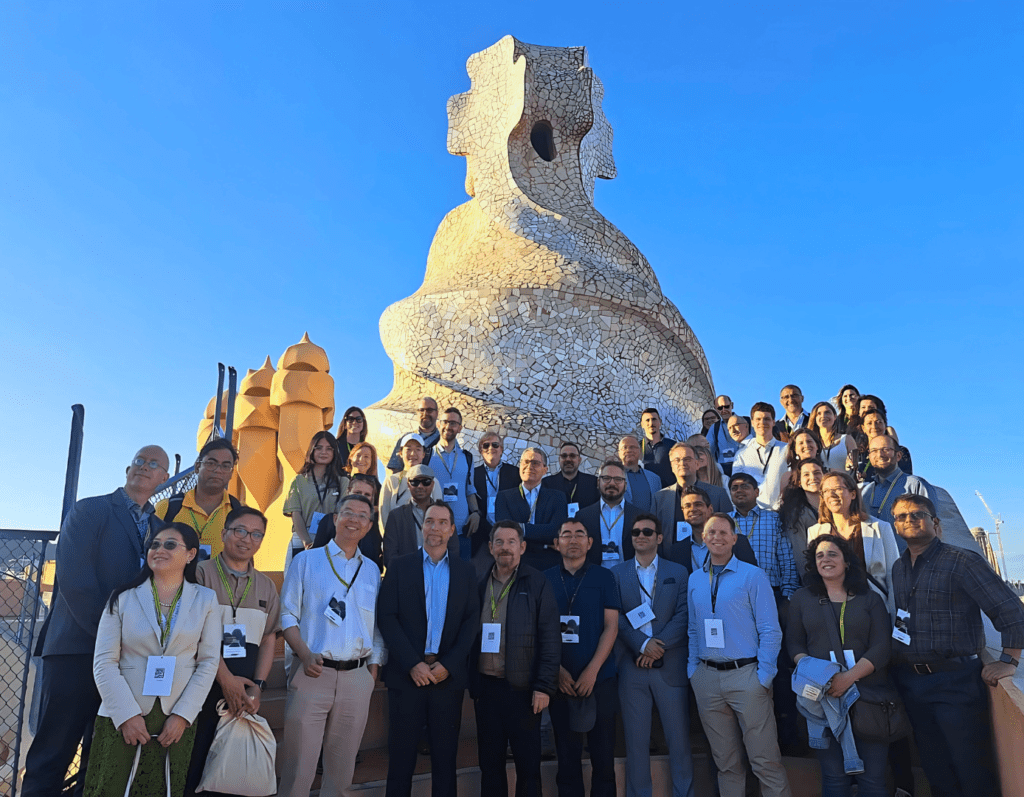
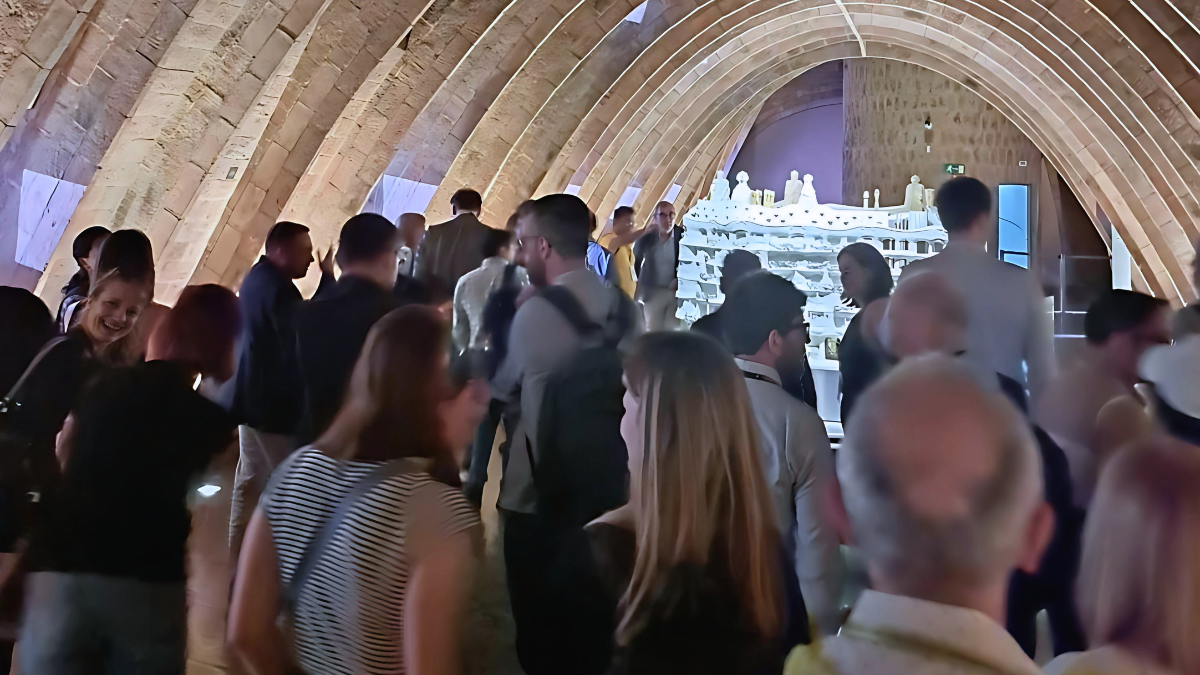
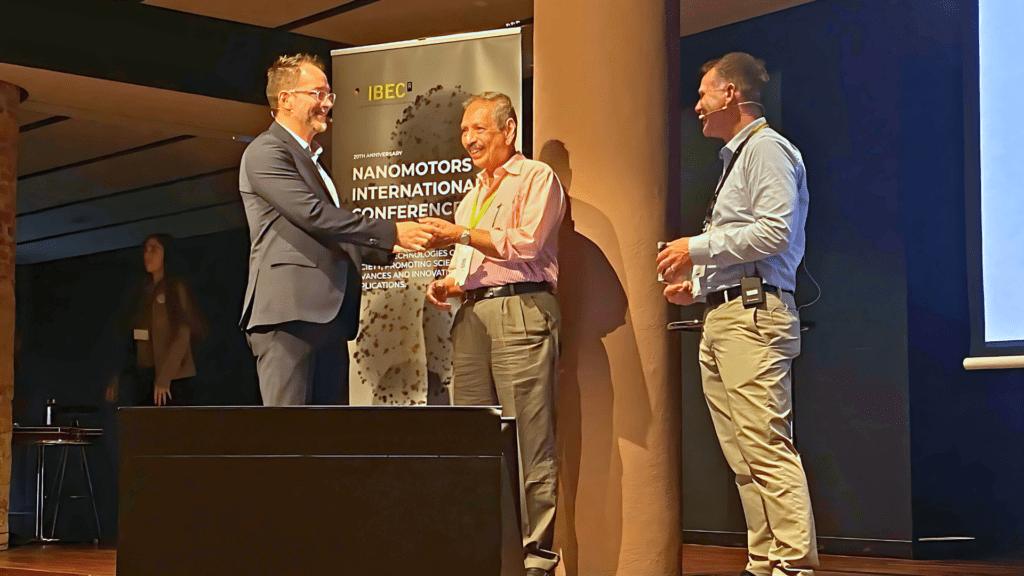
Three days to learn about the latest advances in nanomotors
The conference was held at the CosmoCaixa Science Museum from 3 to 5 June. The opening ceremony was led by Ignasi López Verdaguer, Director of Partnership with Research and Health Institutions at “la Caixa” Foundation, Josep Samitier, Director of IBEC, and Samuel Sánchez.
The event was filled with invited talks, poster presentations and working sessions divided into different areas such as nanomotors for biomedicine, physics of active matter, new materials for nanomotors, light-based control, biomimetic systems and biosensing and environmental applications.
Some of the keynote speakers, internationally renowned for their research in the field of nanomotors, were Emma Fan from the University of Texas (USA); Peer Fischer from the University of Heidelberg and the Max Planck Institute for Medical Research (Germany); Ramin Golestanian from the Max Planck Institute for Dynamics and Self-Organisation in Göttingen (Germany); Henry Hess from Columbia University (USA); Bradley Nelson from the Swiss Federal Institute of Technology (ETH) Zurich, Switzerland; Oliver Schmidt from the University of Chemnitz, Germany; Metin Sitti from the Max Planck Institute for Intelligent Systems in Stuttgart, Germany; Joseph Wang from the University of California San Diego, USA; and Li Zhang from the Chinese University of Hong Kong (CUHK), China.
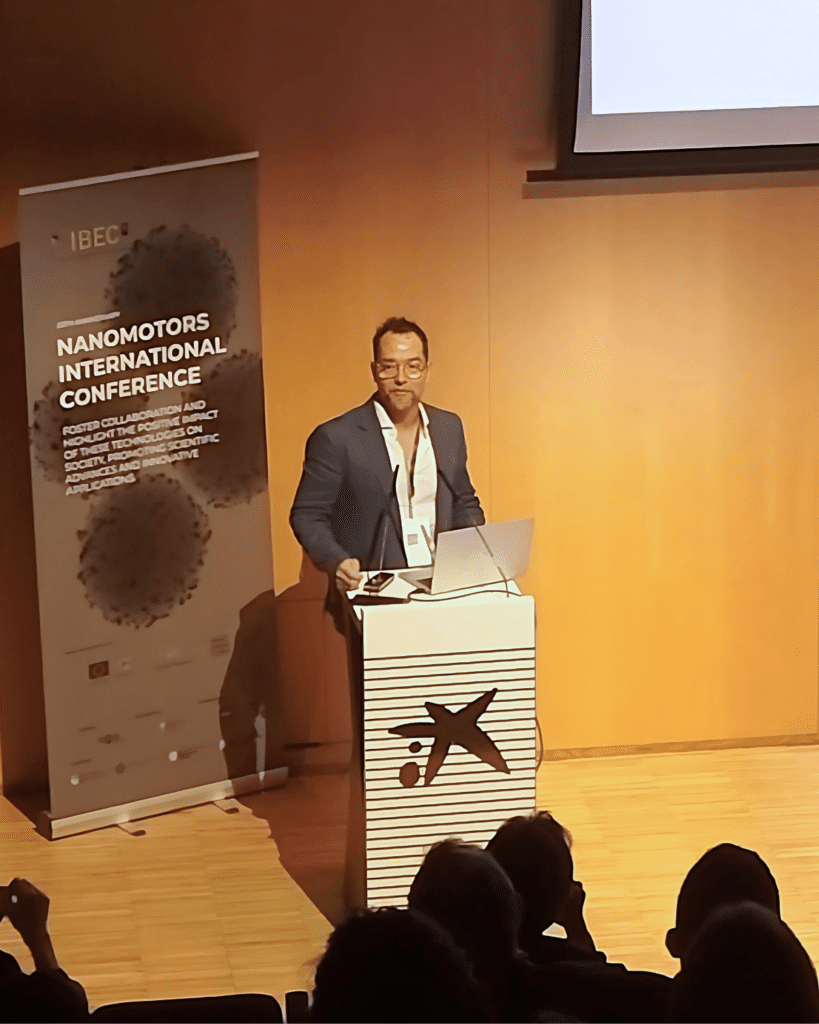
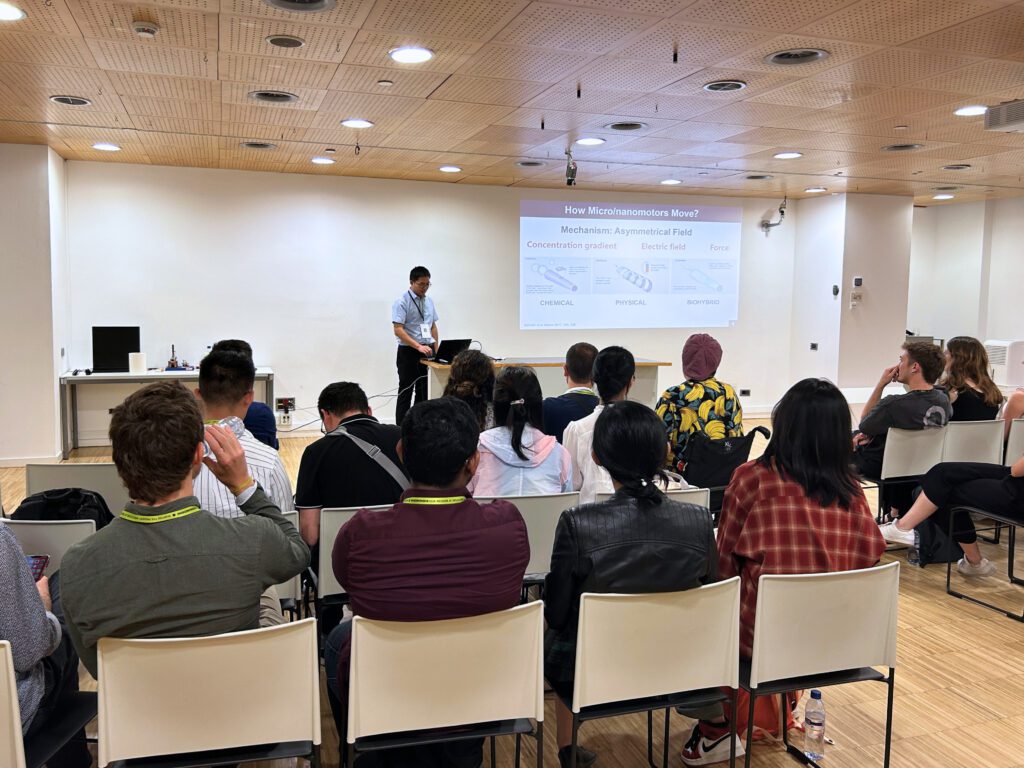
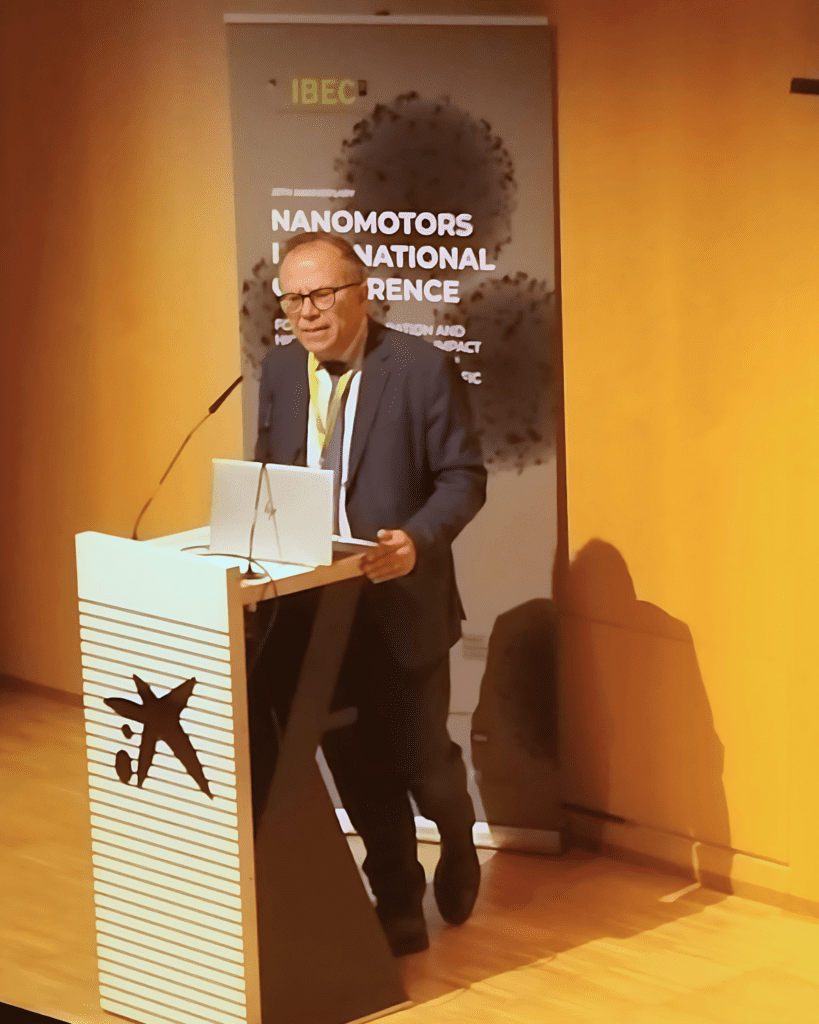
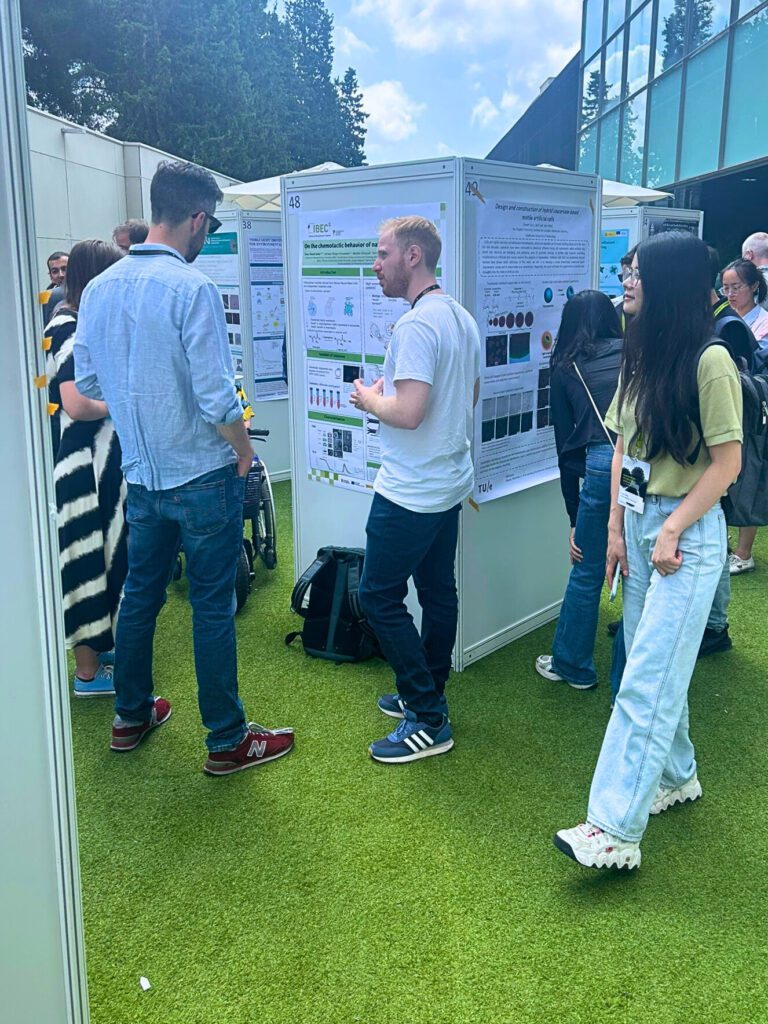
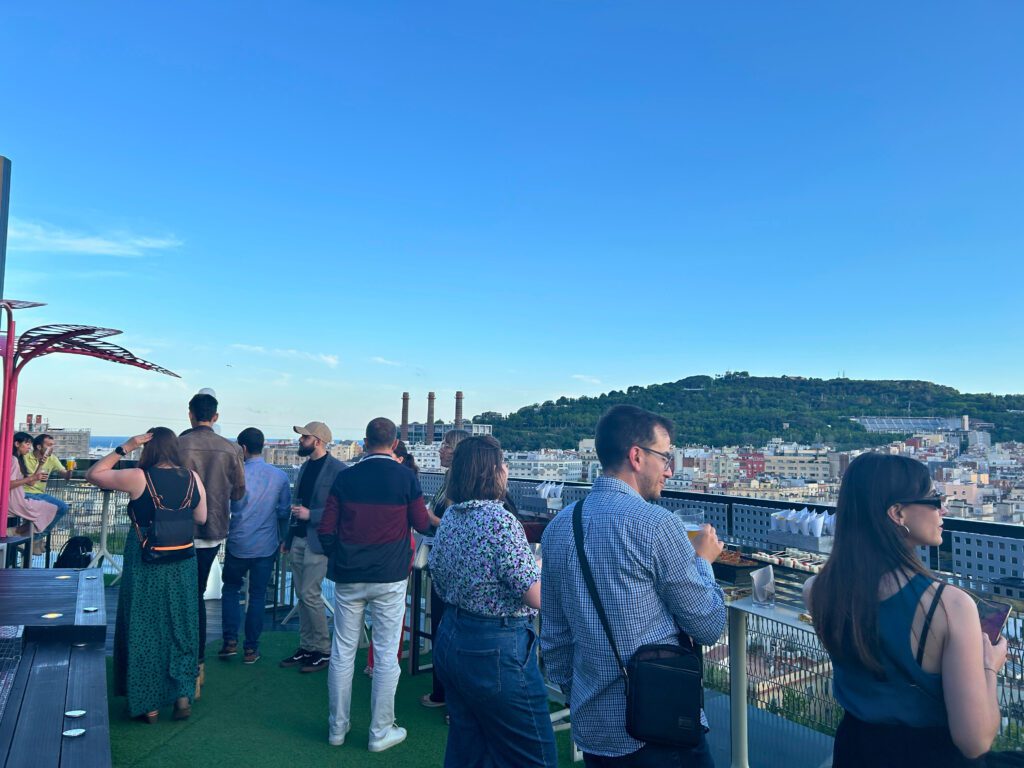
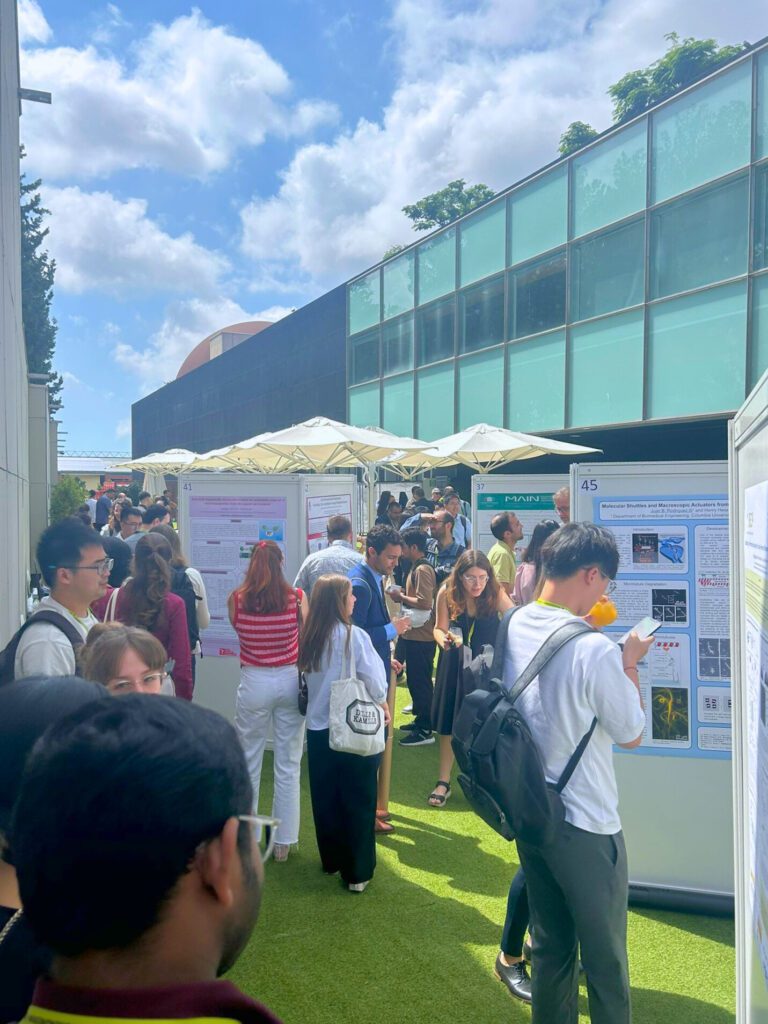
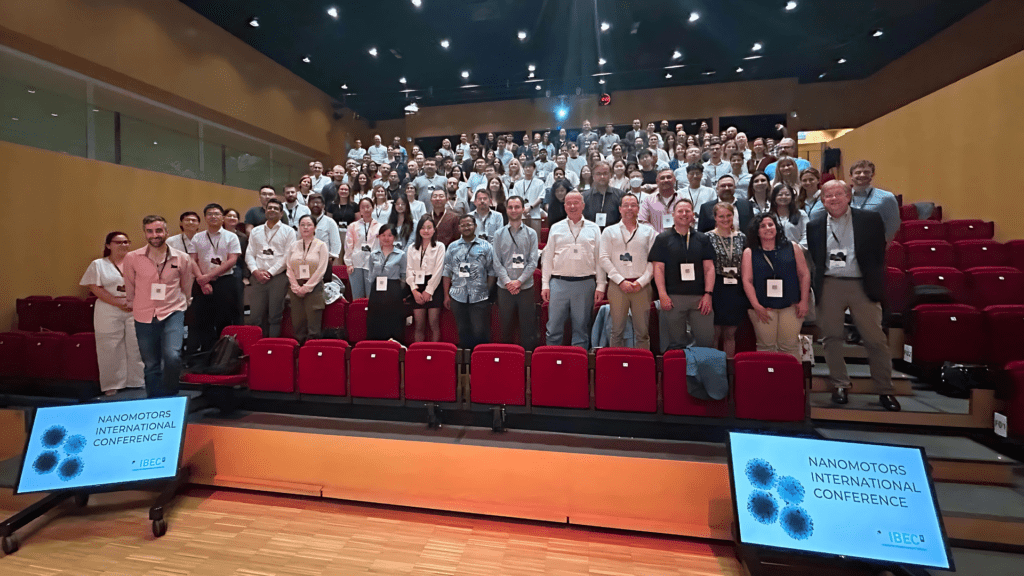
Rewarding emerging talent
The conference ended with the presentation of awards in several categories.
Nature Reviews Materials, Nature Nanotechnology and Nature Communications awarded prizes for the best poster of the day. Third place went to Cagatay M. Oral (Central European Institute of Technology), second place to Cole Fredericks (University of Waterloo) and first place to Valentin Gantenbein (ETH Zürich).
The company Nanoscribe sponsored a prize for the best short talk, which was awarded to Stephen Ebbens (University of Sheffield). A further three short talks received awards from the Royal Society of Chemistry, each from one of its journals: the Journal of Materials Chemistry B, Materials Advances and Materials Horizons. The prize for best short talk in Nanomotors for Biomedicine went to Meritxell Serra Casablancas (IBEC), best short talk in New Materials for Nanomotors to Yu-Ching Tseng (The Pennsylvania State University), and best short talk in Motion Control to Enrique Solano Rodríguez (Universidad de Alcalá).
Finally, the Advanced Intelligent Systems journal gave the award for best postdoctoral talk to Yufen Chen (InsFtute of Chemical Research of Catalonia – ICIQ) and the award for best PhD student talk to Andrea Veciana (ETH Zürich).
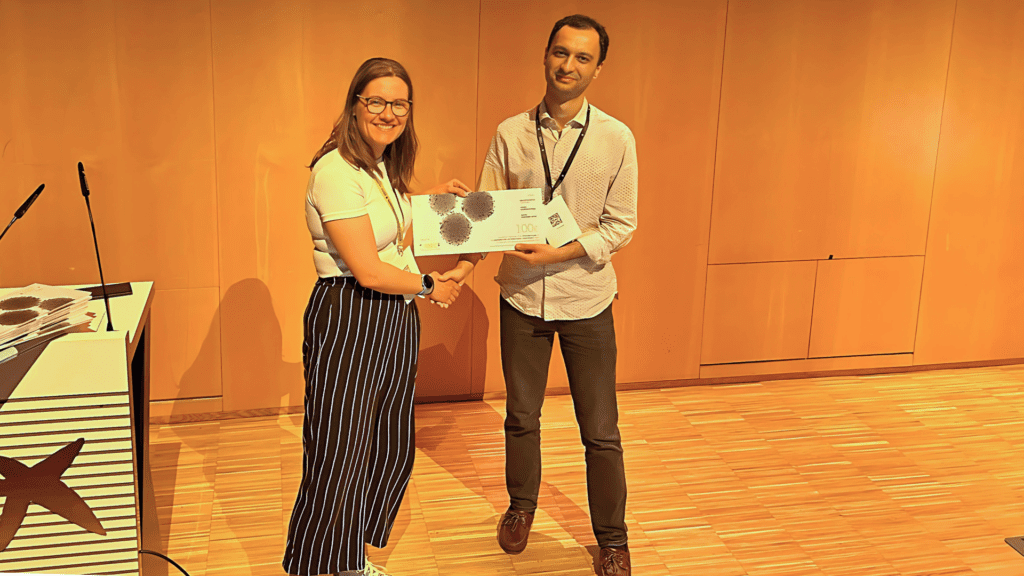
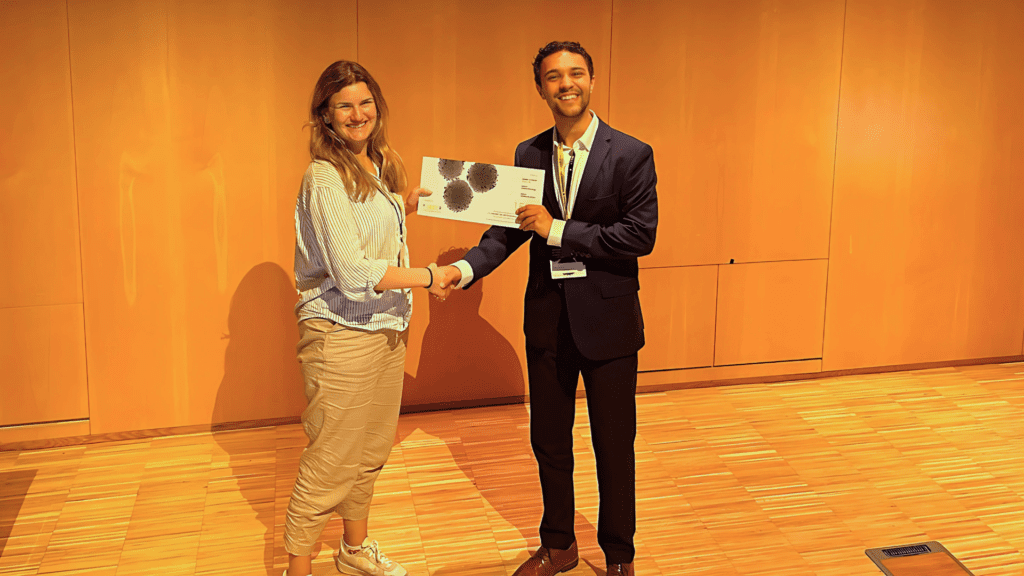
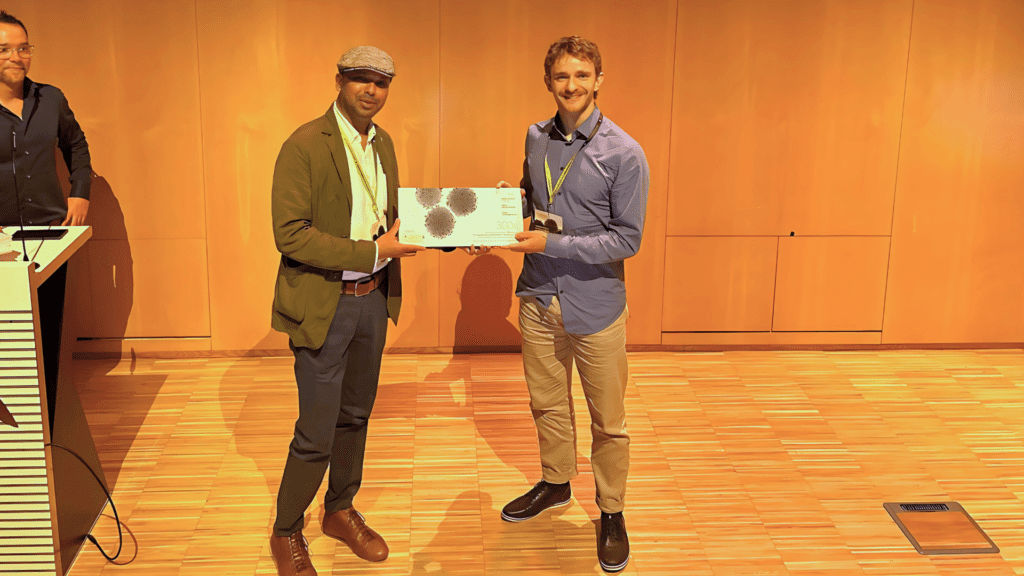
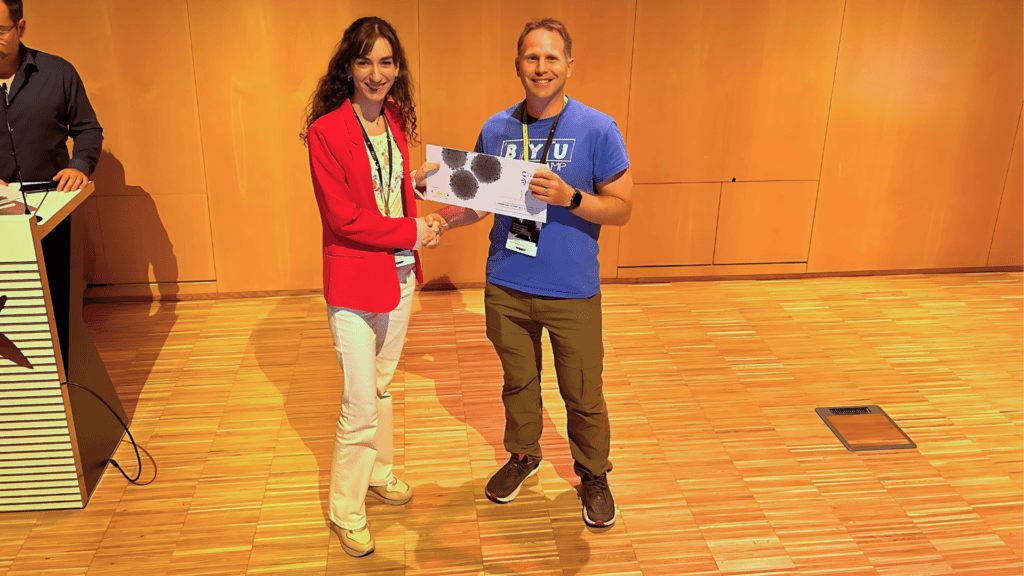
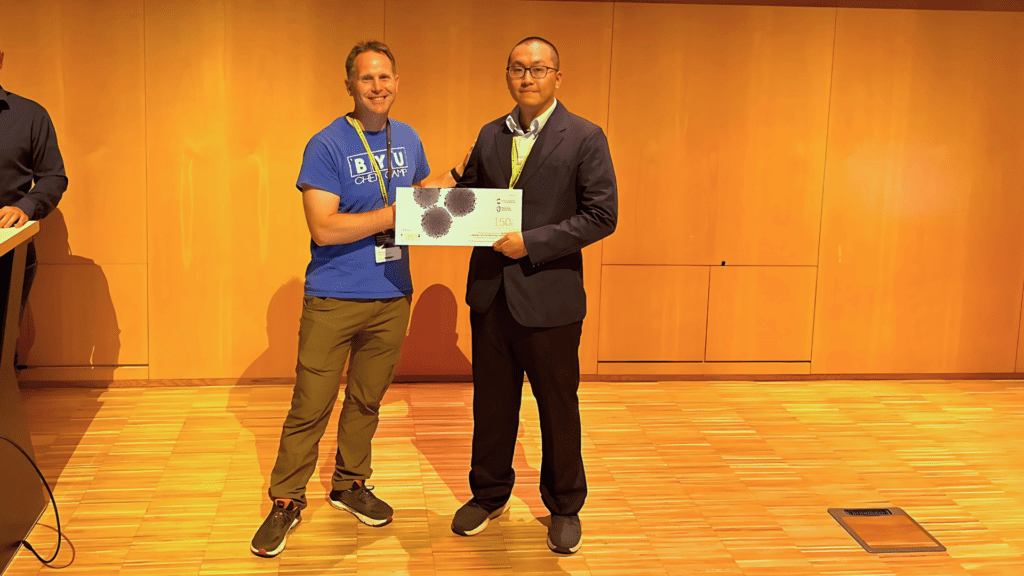
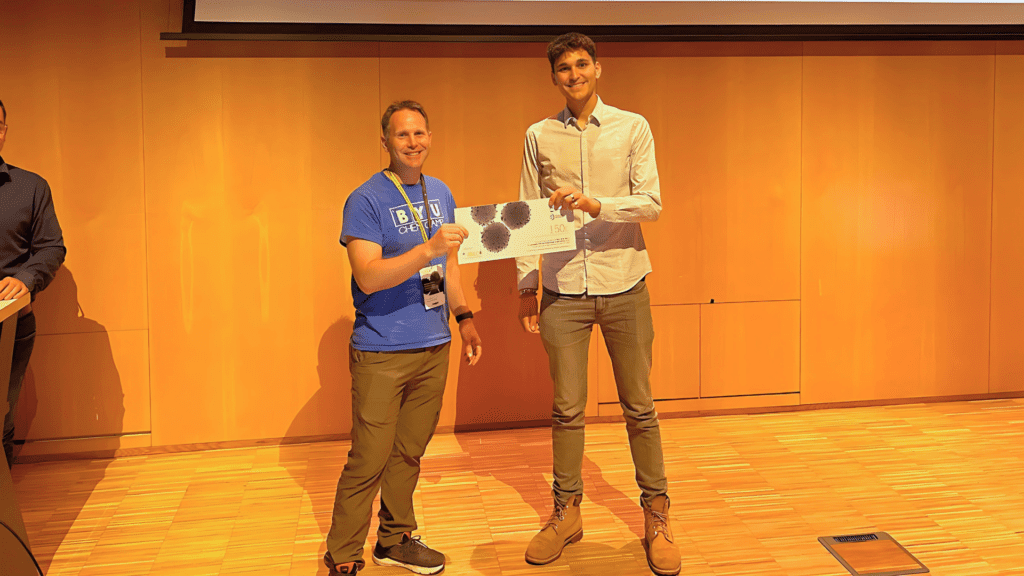
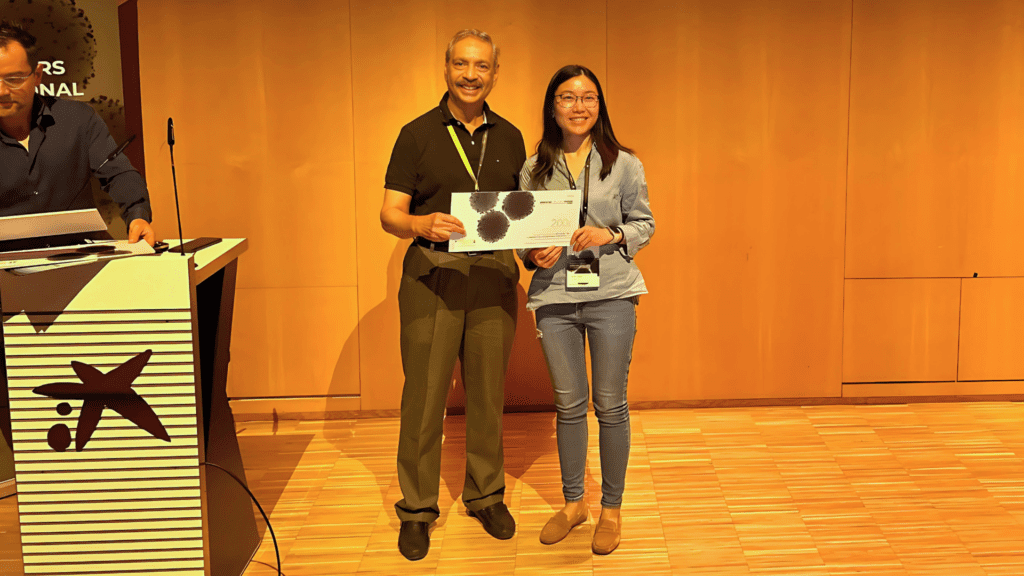
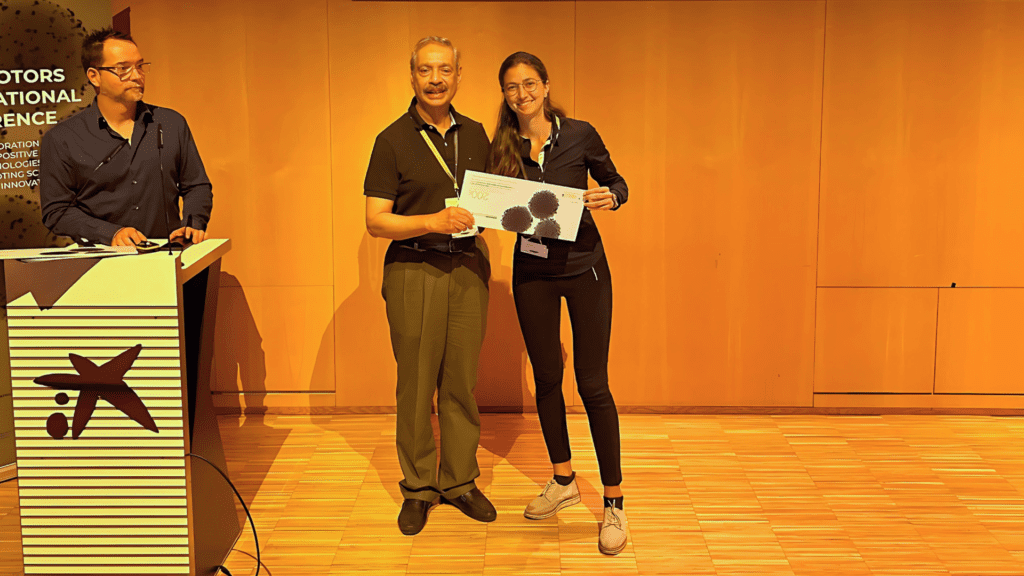
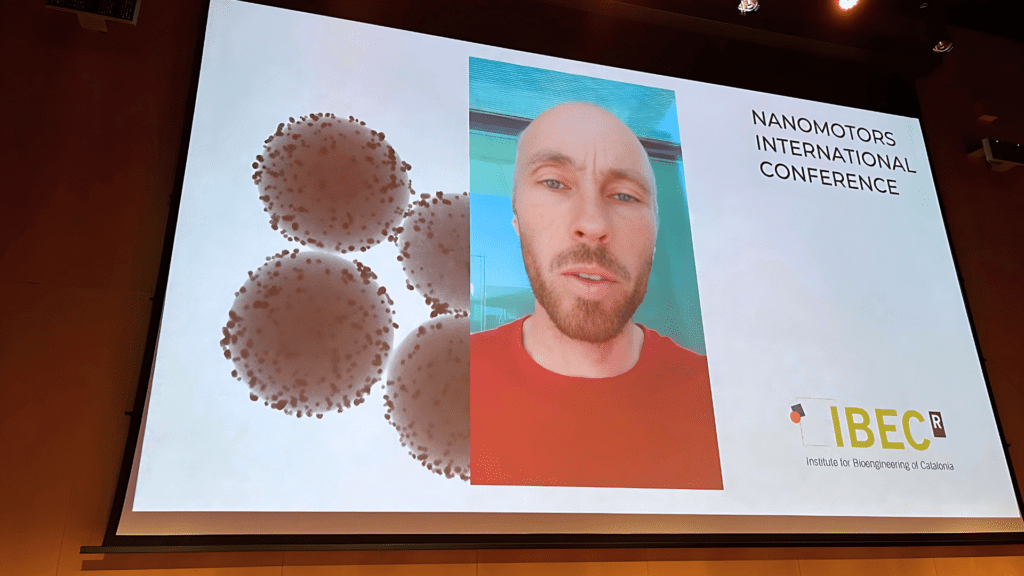
The International Nanomotors Conference fostered collaboration, highlighted the positive impact of these technologies on society, promoted scientific advances and innovative applications, and explored current and future challenges in bringing these technologies to the clinic and the marketplace.





